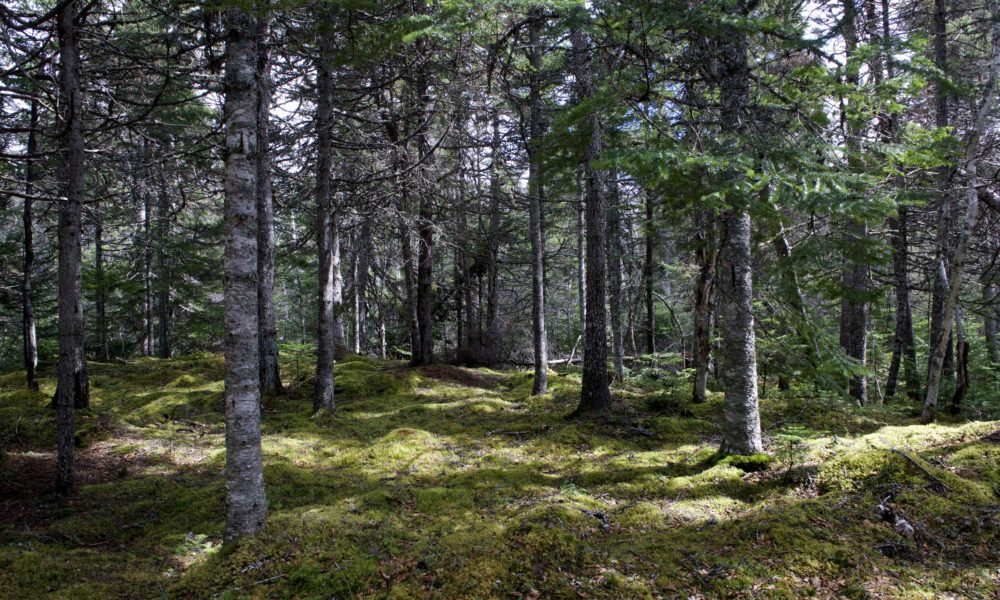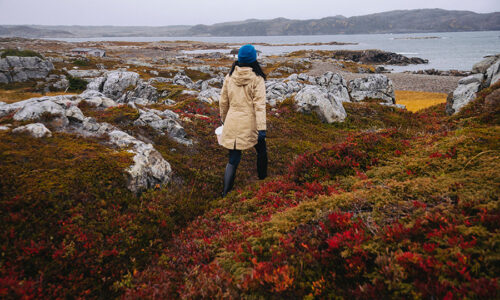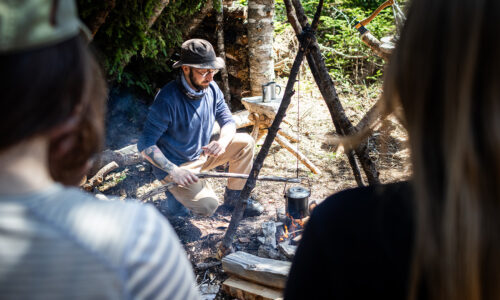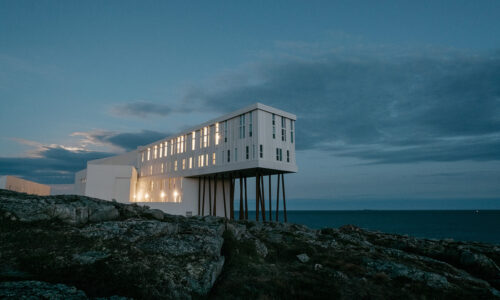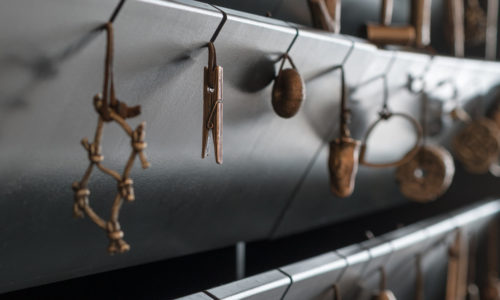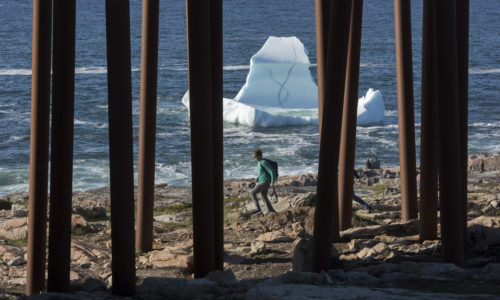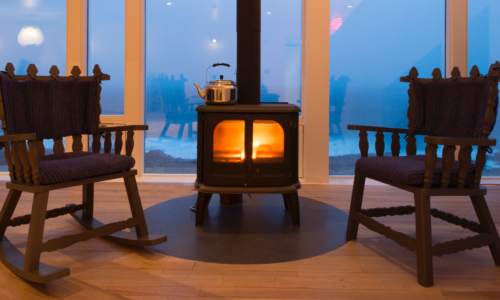In History | By Fogo Island Inn | January 18, 2019
Indigenous Peoples and Fogo Island
Land Acknowledgment – Fogo Island and Newfoundland
We respectfully acknowledge the territory in which we gather as a part of the ancestral homelands of the Beothuk, and the island of Newfoundland as the ancestral homelands of the Mi’kmaq and Beothuk.
The Beothuk lived for generations in Notre Dame Bay. The area surrounding the bay, and the rivers that flow into it, formed their spiritual heartland. Archaeological finds and anecdotal evidence suggest Beothuk people visited Fogo Island primarily in the summer months, engaging in hunting, fishing, and the seasonal harvesting of edible wild roots, berries, and fruits.
Today on the island, we continue to feel their presence and their energy, and we are motivated to do better, inspired by their deep respect for nature and their lessons of how to steward what is a beautiful, often challenging, and bountiful land.
In addition to the Beothuk, the Maritime Archaic people were among the earliest residents of Newfoundland. They were followed by the Dorset people, whose dwelling sites can be found all along the coast of the mainland.
As is commonly known amongst Newfoundlanders and many other Canadians, the Beothuk people were decimated to make way for encroachment and settlement of these lands we know and love. There is no proper or adequate way to atone for the actions of our ancestors but to do our best to acknowledge what occurred, honour the legacy of those lost, and maintain a profound caring for the land and resources they once cared for. We are humbled by the spirit of those who were before us.
We on Fogo Island encourage a deep reverence in honouring the Beothuk, and all Indigenous cultural communities across Canada. We wish for truth, healing, and prosperity as we move forward together in a journey of peace.
Indigenous Peoples and Fogo Island
Indigenous peoples of Turtle Island (many indigenous peoples refer to the North American continent as Turtle Island, and some use this term to refer to the entire world) are comprised of varied and distinct nations, many of which are thriving and growing today. A common misperception among visitors and settlers of Indigenous peoples is that they are comprised of one extinct culture. Today, it is more widely known that despite gross colonial efforts to decimate these peoples, their cultures, languages, and traditions, are still very much alive. The Beothuk of Newfoundland are an exception to this fact.
Tragically, through disease, displacement from traditional territories, and colonial violence, the last Beothuk person, Shanawdithit, died in 1829. With this in mind, it is important to note that other than the drawings and oral history communicated by Shanawdithit before she died, all of the knowledge we have about the Beothuk is derived from archeological evidence, local-oral histories of settlers and Mi’kmaq peoples, and by comparing and contrasting comments in unreliable primary documents written by early settlers. In sum, this means we can’t speak about Beothuk peoples without speaking on behalf of them, which is never ideal.
With the knowledge we do have, it has been generally found that the Beothuk most likely never had permanent settlements on Fogo Island. However, one of the best-preserved Beothuk villages is not so far away – located in Boyd’s Cove. The Beothuk probably visited Fogo Island as a summer camp, when the elements were ideal for a trip from the more protected coves of mainland Newfoundland. These conclusions have been drawn from archaeological evidence and local-oral histories. An archeological survey of Fogo Island by Donald H. Holly Jr. in 1997 found all evidence to suggest that settlement of Fogo Island was non-intensive and sporadic and that “despite historical records suggesting high Beothuk visibility in the area, the archaeological record is less clear in regards to the nature of Beothuk activity.”
Sources and further reading:
- Beothuk Interpretation Centre, Boyd’s Cove: http://www.seethesites.ca/the-sites/beothuk-interpretation-centre.aspx
- Holly, Donald H. Jr. “Archeological survey of Fogo Island, Newfoundland.” Northeast Anthropology 56 (1998): 69-74.
- Kristensen, Todd J. Holly, Donald H. Jr. “Birds, Burials and Sacred Cosmology of the Indigenous Beothuk of Newfoundland, Canada.” Cambridge Archaeological Journal 23 (2013): 41-53.
- Marshall, Ingeborg. A History and Ethnography of the Beothuk. Kingston: McGill-Queens Press, 1996.
- Owen, Suzanne. “The Demise of the Beothuk as a Past Still Present.” Journal of the Irish Society for the Academic Study of Religions 1/2 (2015): 119-139.
